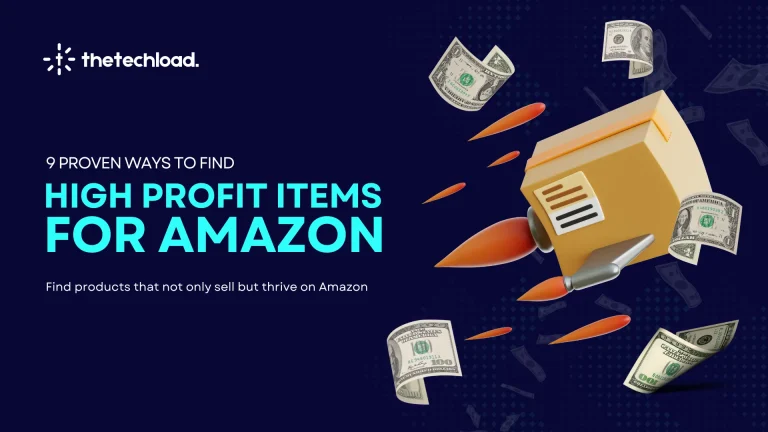Finding profitable products to sell on Amazon is the key to success for any seller. As competition increases in 2025, choosing the right products is more important than ever. It’s not just about picking popular items anymore you need to understand market trends, customer needs, and the competition to stay ahead.
With so many options and sourcing methods, it’s easy to feel overwhelmed. But with the right approach, you can find items that are not only in demand but also profitable for your business.
This article is here to guide you with simple and effective strategies to find the best products. By following these tips, you’ll be ready to build a successful product catalog and grow your Amazon business.
9 Ways to Find Profitable Products to Sell on Amazon
Following are the 9 ways to find Profitable Products to Sell on Amazon.
- Apply Filters to Amazon’s Product Database
- Monitor Trending Products on Social Media
- Analyze Amazon Best Sellers List
- Leverage Product Research Tools
- Check Seasonal Trends Using Google Trends
- Study Customer Reviews for Product Ideas
- Check Out External Marketplaces
- Explore Liquidation or Overstock Sales for Discounts
- Generate Product Ideas with AI
9 Ways to Find Profitable Products to Sell on Amazon
Method 1: Apply Filters to Amazon’s Product Database
Refining your product search on Amazon is a simple yet powerful way to identify profitable items. You can narrow down millions of products to those that align with your goals by using specific filters. Here’s how:
Critical Criteria to Consider:
- High Demand: Look for products generating at least 300 monthly or 10 daily sales to ensure consistent customer interest.
- Low Competition: Choose niches where top sellers have fewer than 400 reviews, making it easier for your product to stand out.
- Compact Size and Lightweight: Opt for items under 5 lbs and smaller than 18″x14″x8″ to minimize storage and shipping costs.
- Ideal Pricing: Focus on products priced between $30 and $70—affordable for buyers but profitable for sellers.
- Healthy Margins: Prioritize items with sourcing costs at or below 25% of the selling price to maximize profit potential.
Why Use Filters?
Manually browsing Amazon’s vast product database can be time-consuming and inefficient. Filters simplify the process, helping you quickly find products that meet your criteria. With this targeted approach, you save time, reduce guesswork, and boost your chances of uncovering hidden gems to sell on Amazon.
Method 2: Monitor Trending Products on Social Media
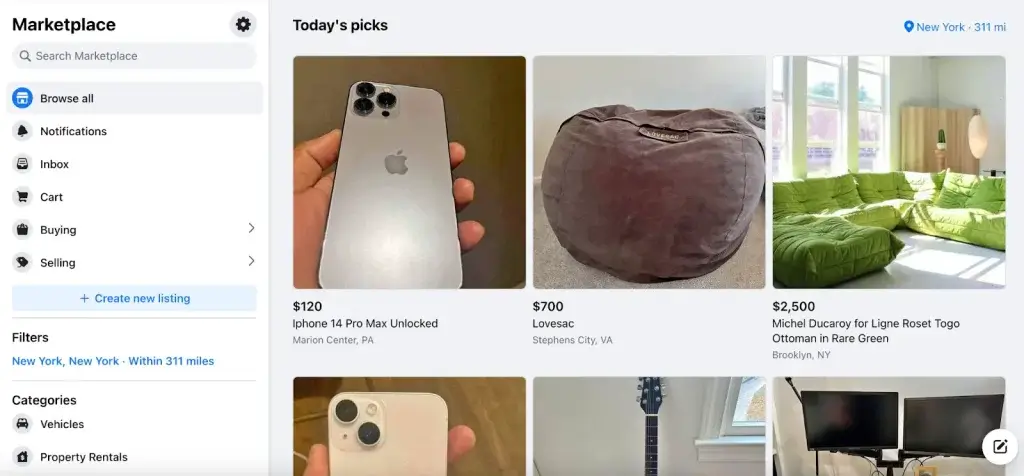
Social media platforms like Instagram, TikTok, and Pinterest are great places to spot emerging trends before they become mainstream. Many influencers and brands share the latest products that are gaining popularity, providing valuable insight into consumers’ interests.
- Hashtags: Follow popular hashtags to track trending products.
- Influencer Collaborations: Pay attention to products being endorsed by influencers.
- Product Launches: Monitor brand-new product launches for inspiration.
Social media gives you a unique opportunity to catch trends early, allowing you to act fast and add these trending products to your Amazon store.
Method 3: Analyze Amazon Best Sellers List
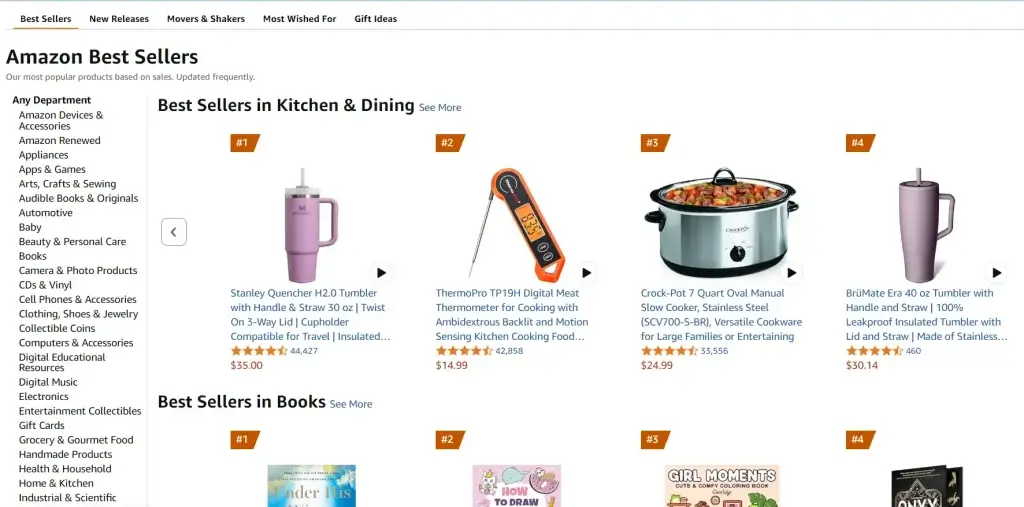
Amazon’s Best Sellers list is a valuable resource for identifying high-demand products. The list ranks products based on sales volume, helping you see what’s popular within different categories.
You can pinpoint items with consistent sales and minimal competition by analyzing the list.
- Category Breakdown: Browse through different categories and sub-categories.
- Best Seller Rank (BSR): Products ranked higher generally have more sales.
- Niche Exploration: Explore niches with fewer sellers for a better chance of success.
The Best Sellers list provides a clear view of what’s selling well, making it a great place to start your product research.
Method 4: Leverage Product Research Tools
Product research tools like Jungle Scout, Helium 10, and AMZScout can help you uncover profitable products on Amazon quickly. These tools offer detailed data on product performance, including sales estimates, competition, and pricing trends.

- Sales Estimates: Determine how much a product sells each month.
- Competition Level: See how many sellers are competing for the product.
- Profitability Calculators: Evaluate profit margins and costs.
These tools make making data-driven decisions about what to sell easier, streamlining the product research process.
Method 5: Check Seasonal Trends Using Google Trends
Google Trends is a free tool that shows the popularity of search terms over time. You can plan your inventory by identifying seasonal products to align with peak shopping periods like holidays, summer, or back-to-school seasons.
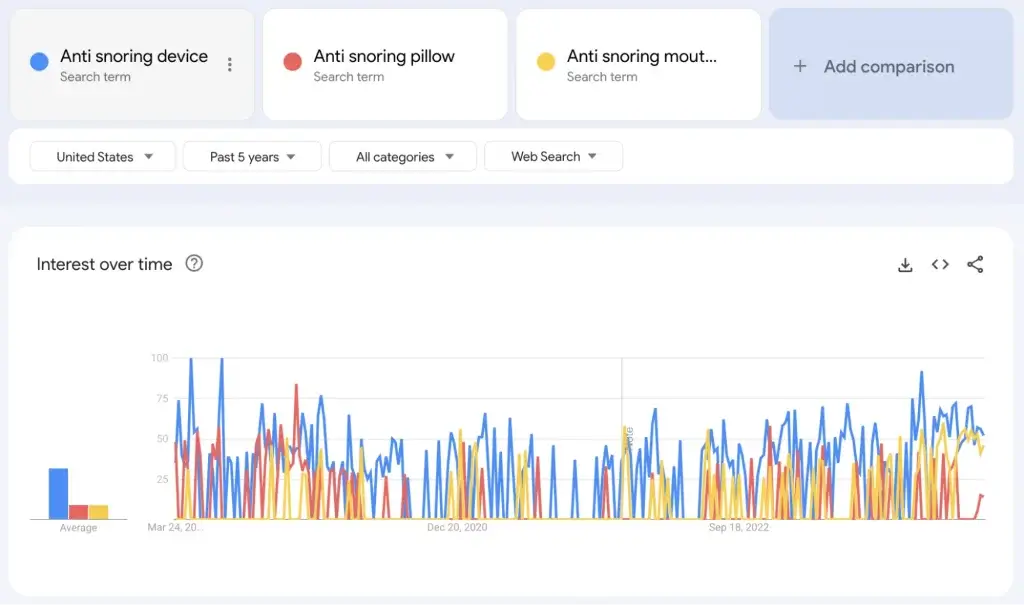
- Time-sensitive Trends: Identify products that peak during certain times of the year.
- Comparative Insights: See how different products perform relative to each other.
- Early Planning: Get ahead of the curve by sourcing products well before the season hits.
Seasonal products can generate much revenue when timed correctly, and Google Trends helps you predict when these products will be in demand.
Method 6: Study Customer Reviews for Product Ideas
Customer reviews can provide valuable insights into what buyers like or dislike about existing products. By analyzing feedback, you can identify gaps in the market and find opportunities to improve existing products or create new ones that better meet customer needs.
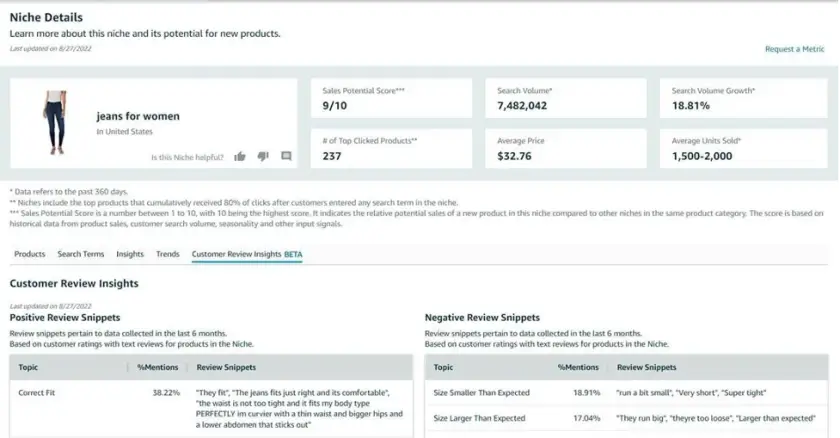
- Pain Points: Look for recurring complaints to address.
- Product Features: Identify features customers love or wish were improved.
- Demand for Innovation: See where there is a demand for improved versions.
You can uncover hidden product opportunities that appeal to buyers and set your listing apart by reading customer reviews.
Method 7: Check Out External Marketplaces
While Amazon is the largest marketplace, other platforms like eBay, Etsy, and Alibaba often feature unique or niche products that could sell well on Amazon. Exploring these external sites allows you to source products that may not be widely available, giving you a competitive edge.
- Etsy: Find handmade or custom products to sell.
- Alibaba: Source products directly from manufacturers at lower prices.
- eBay: Look for rare or collectible items with potential on Amazon.
By expanding your search beyond Amazon, you can find unique products that differentiate your store from the competition.
Method 8: Explore Liquidation or Overstock Sales for Discounts
Liquidation and overstock sales offer significant discounts on products you can resell on Amazon. Retailers often sell off their excess stock at lower prices, which can be a goldmine for Amazon sellers looking to find quality items at a fraction of the retail cost.
- Discounted Prices: Purchase items at reduced prices to increase profit margins.
- Product Variety: Access a wide range of products from different categories.
- Bulk Discounts: Buy in bulk to save even more on inventory.
By exploring liquidation sales, you can find High-quality, profitable Products to Sell on Amazon at a lower cost.
Method 9: Generate Product Ideas with AI
AI-powered tools like ChatGPT and AI-based product research platforms can be a game-changer when finding profitable products to sell on Amazon. These tools use advanced algorithms to analyze current trends, customer behavior, and market data, providing you with innovative product ideas you might have yet to consider.

- Data-Driven Ideas: AI evaluates market trends and identifies products with high demand.
- Customizable Suggestions: Tailor AI insights to focus on your niche or target audience.
- Quick Research: Get detailed insights on product demand, competition levels, and profitability within seconds.
Using AI tools simplifies the process of discovering profitable products to sell on Amazon, helping you stay competitive and make data-backed decisions for your business.
Conclusion
Finding profitable products to sell on Amazon requires a mix of strategy, research, and creativity. By using these nine methods, you can uncover hidden opportunities, identify emerging trends, and select products that will help your Amazon business grow. Whether you’re new to Amazon or looking to expand your product catalog, these strategies provide a solid foundation for success.
How to Find Profitable Products to Sell on Amazon: FAQs
Visit Amazon’s Best Sellers page and explore categories of interest. Focus on products with strong sales and low competition for the best opportunities.
Popular categories include Beauty, Home & Kitchen, Electronics, and Toys. These niches have high demand and consistent sales potential.
Yes, many sellers earn $1,000+ monthly by choosing profitable products, optimizing listings, and using Amazon FBA for fulfillment.
It’s the product with the highest sales in a category, reflected by the #1 Best Seller badge, updated hourly based on real-time sales.
Use tools like Helium 10 or Jungle Scout to analyze demand, reviews, and sales data to identify low-competition, high-demand items.

